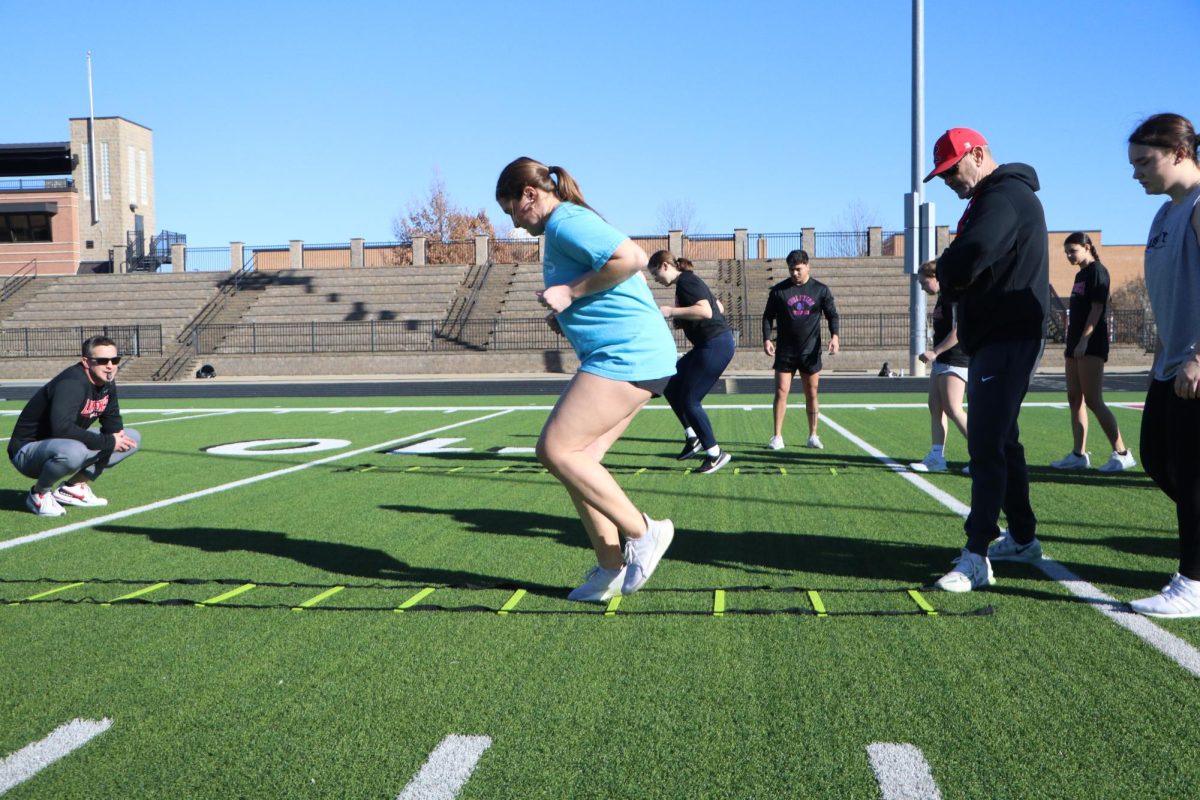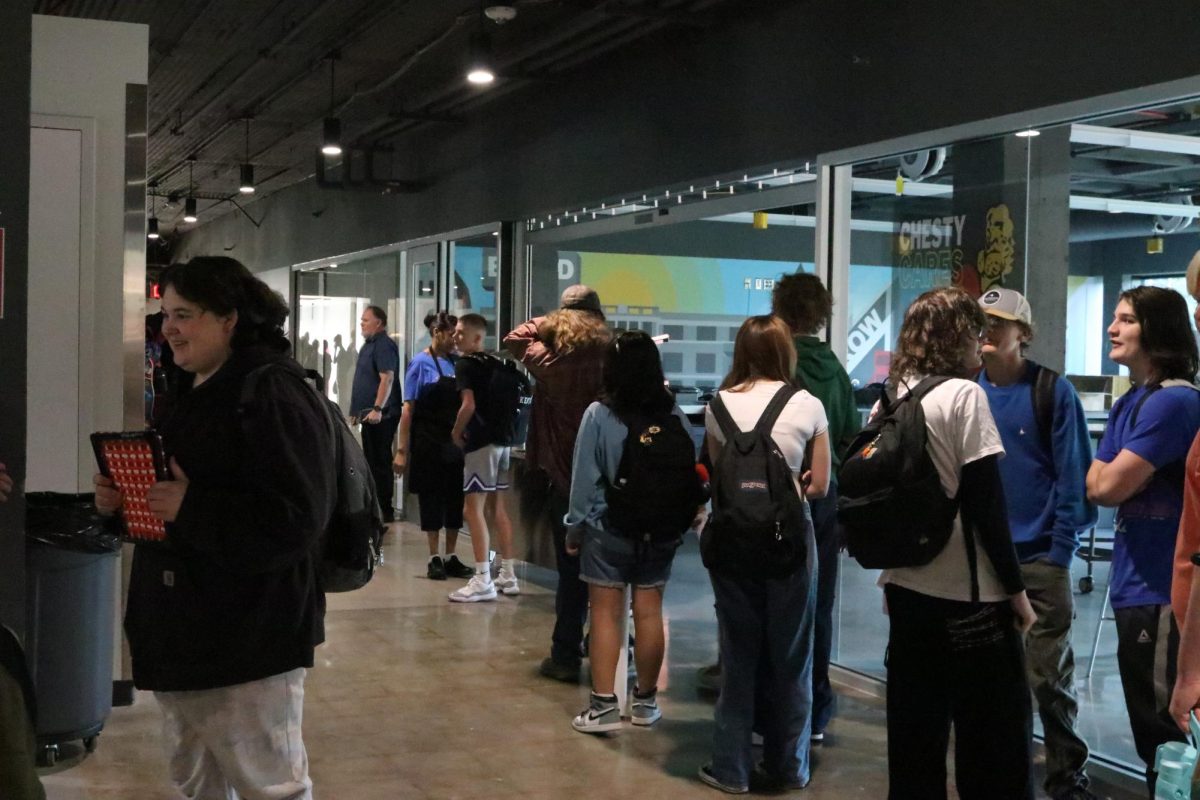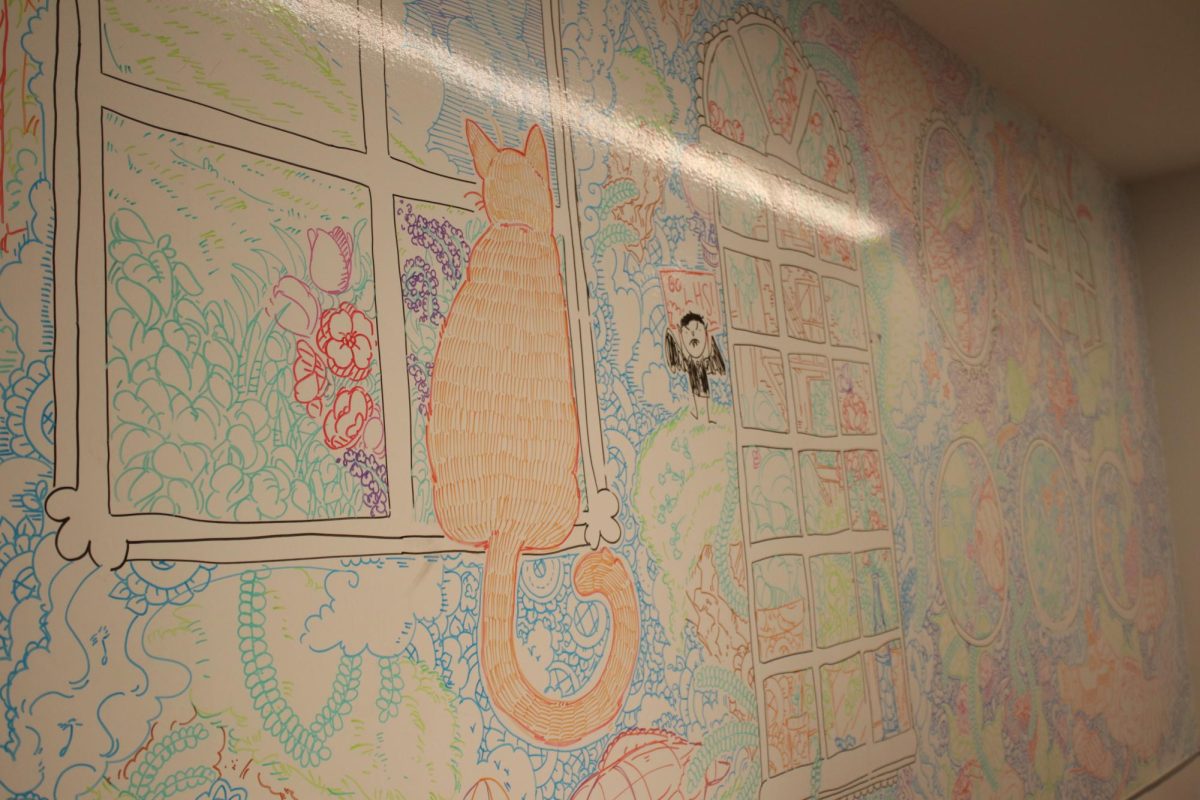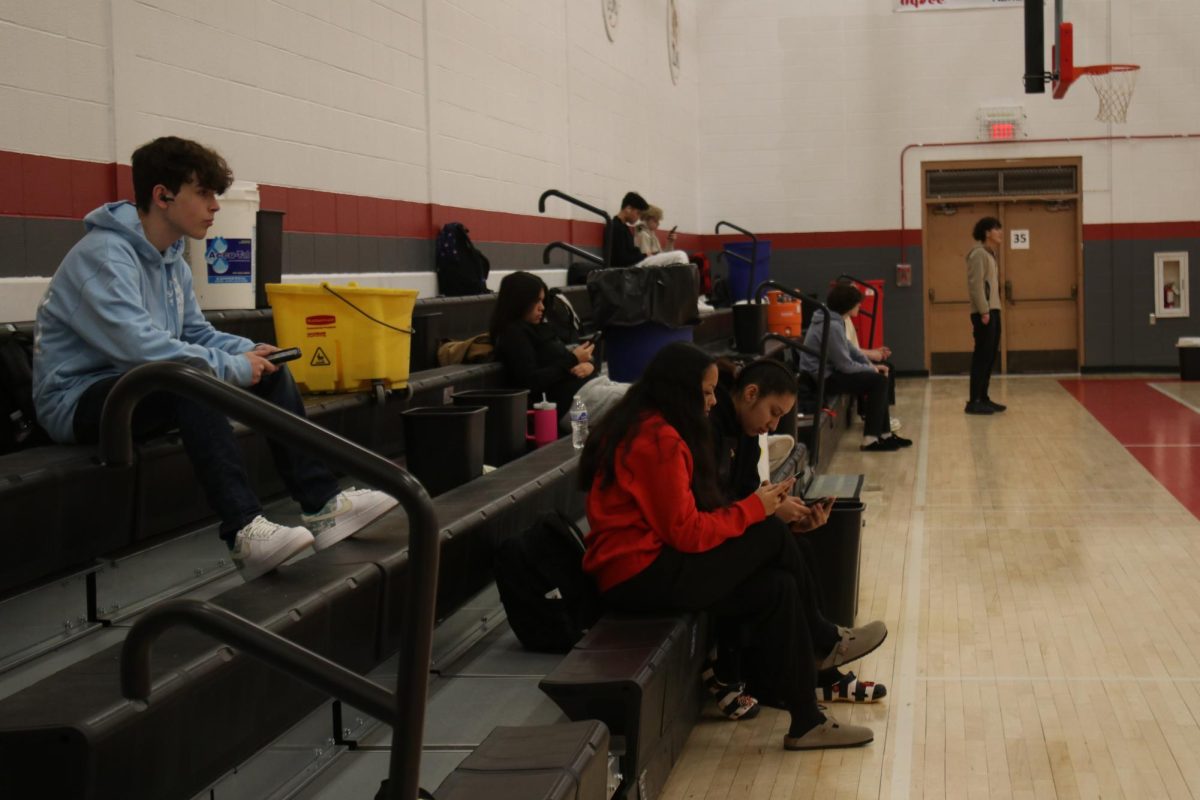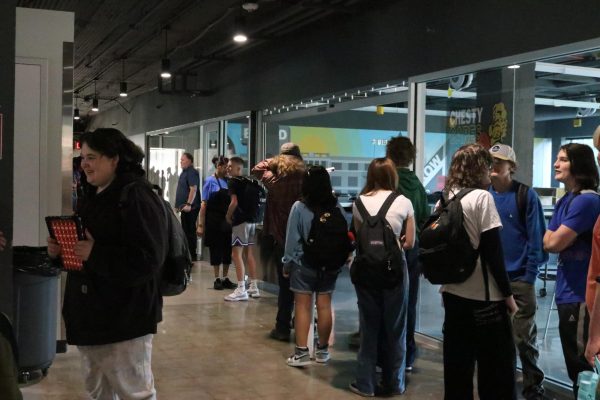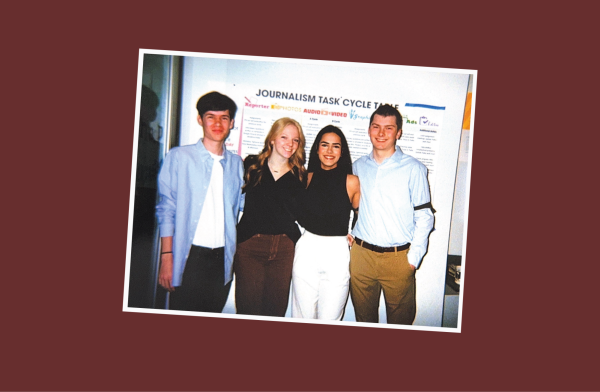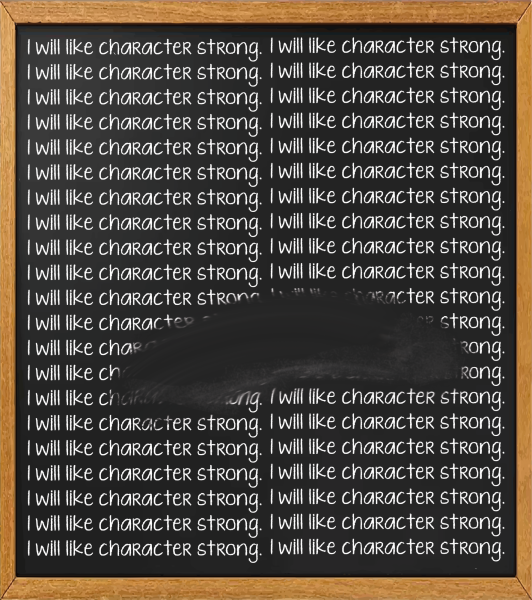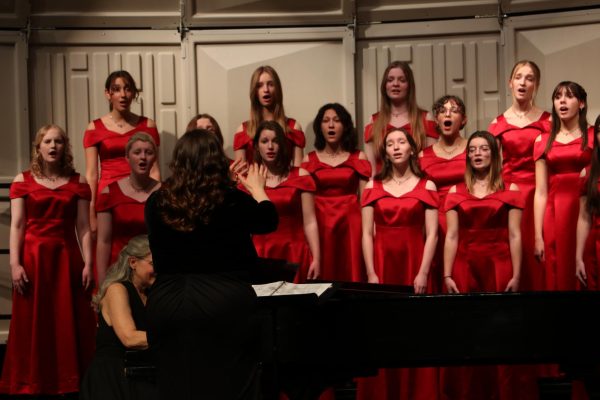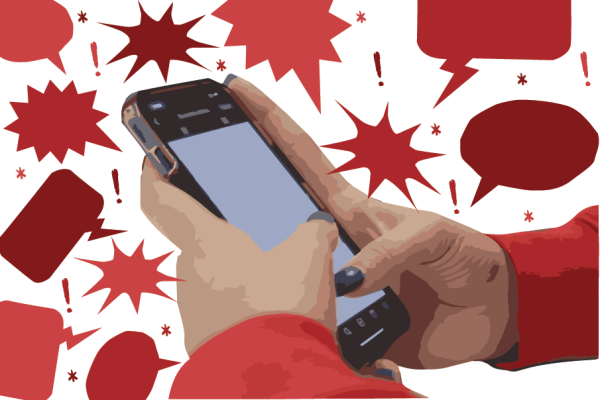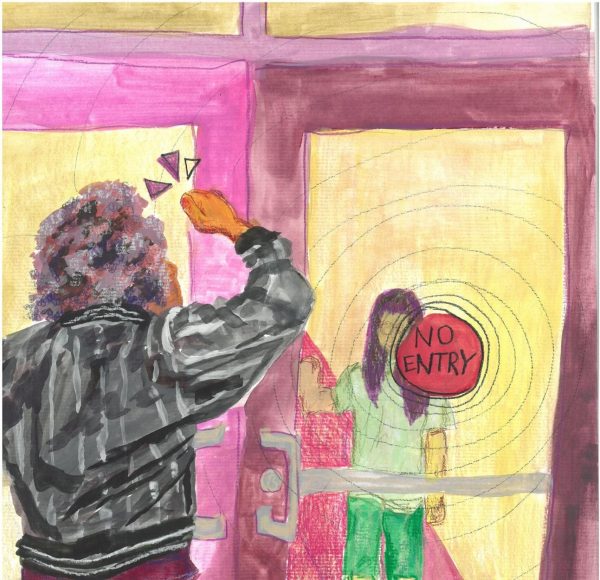Selfies consume the lives of teenagers
‘Me Generation’ is obsessed with documenting their every move, keeping record of themselves over time
April 30, 2014

“But first, let me take a selfie.”
Selfies have become culturally commonplace. It’s no longer unusual to look across the classroom and see students stop working to lean in and document that day’s science lab.
Besides biology class, selfies exist on the internet. There isn’t a social media site that hasn’t had pixels in the form of a human face grace at least one of its pages.
Not only do the people you see in class and on the streets take selfies, but most celebrities and public officials have posted at least one on the internet as well.
Ezra Koenig, singer of the indie-rock band Vampire Weekend, has publicly advocated for selfie-taking, although he opts for the alternate spelling “selfy.”
“I’m definitely pro-selfy. I think that anybody who’s anti-selfy is really just a hater,” Koenig said in an interview with Rolling Stone. “Because, truthfully, why shouldn’t people take pictures of themselves? When I’m on Instagram, and I see that somebody took a picture of themselves, I’m like, ‘Thank you.’ I don’t need to see a picture of the sky, the trees, plants. There’s only one you.”
Koenig illustrates a positive outlook on selfies. He claims that they benefit people and has faith in “selfie culture.”
The Chainsmokers, however, are two New York residents who received public attention due to their 2014 single “#SELFIE.” The song compiles stereotypes suggesting that selfie-takers have a narrow, self-centered mindset, but also illustrated the undeniable popularity of selfie-taking.
Valid arguments against selfies exist, but they can easily be dismantled with reason. Many people slander the self-centered side of selfies, but a picture of oneself is nearly impossible to make unselfish.
In the past year, more people have often referred to teenagers as the “me generation,” when really humans have been obsessed with themselves for ages.
Wealthy people in the Renaissance sat for hours on end, while artists immortalized their likeness on canvas. They, like people who often take selfies, wanted their likeness to be something that others could examine and even praise.
To me, sitting for the better part of a day to have an image of oneself is a more self-centered task than the 30 seconds a person spends taking a picture of themselves.
With hundreds of students capturing their daily lives in a square photo with a Lo-Fi filter, it’s tough to say that selfies don’t matter.
The value of the “selfie culture” is of exponential importance to the development of our generation as well as generations to come. Being able to look back on yourself as a teenager is one of the best gifts of current technology, seeing how you changed on a daily or weekly basis through an old Facebook or Instagram account.
“It’s important to document yourself at the time and document what changes you’ve gone through over the years,” sophomore Lydia Caldwell said.
Selfies allow people to keep a record of themselves over time, some even create video compilations of those photos to show a change or progress over time and share them on social media sites. The videos show people in transitions, such as going through phases or recovery after an eating disorder.
Having a documented account of your face over the months and years of transition between teenage years and adulthood online is much like a digital scrapbook of yourself, which some adults don’t realize.
So take a picture with your friends when your teacher walks out and have your significant other lean in on a date and get a picture and have something to smile at later, because no one should feel guilty for needing evidence of what they’ve looked like and the things that they’ve done.





